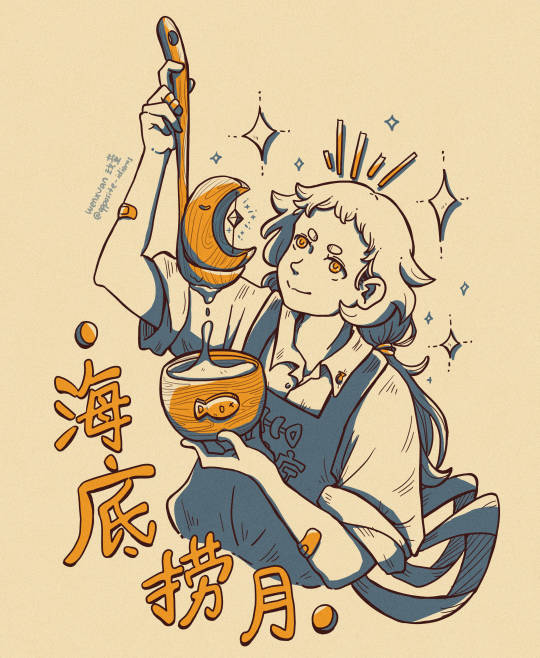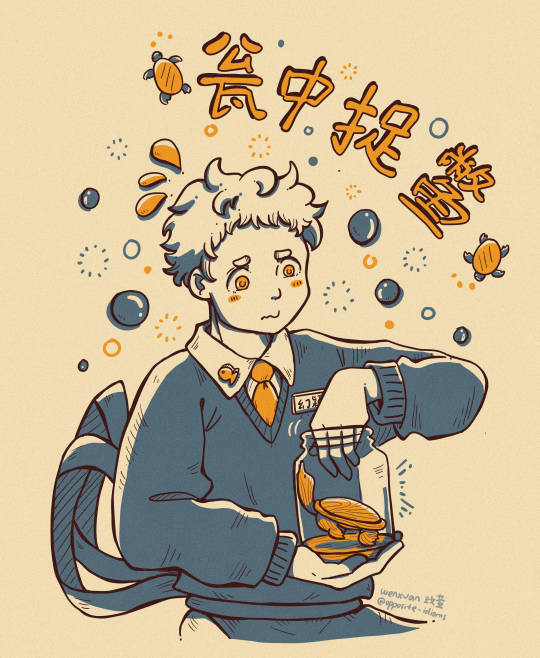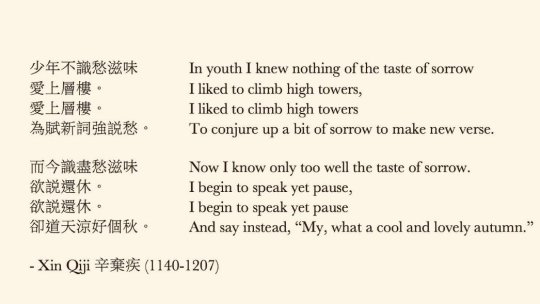#Chinese idioms
Explore tagged Tumblr posts
Text
Chinese idioms of the week
时时刻刻 [shíshíkèkè] - constantly; all the time
引经据典 [yǐnjīngjùdiǎn] - to quote the classical texts
胡说八道 [húshuōbādào] - to talk nonsense
乱七八糟 [luànqībāzāo] - in a complete mess; at sixes and sevens
不伦不类 [bùlúnbùlèi] - nondescript; neither fish nor fowl
不明不白 [bùmíngbùbái] - unclear, vague, for no reason
大喊大叫 [dàhǎndàjiào] - to scream loudly
日日夜夜 [rìrìyèyè] - day and night; day in, day out
哭哭啼啼 [kūkutítí] - to cry continuously
筋疲力尽 [jīnpílìjìn] - to be exhausted
下定决心 [xiàdìngjuéxīn] - to make a firm resolution
毫无疑问 [háowúyíwèn] - without a doubt; certainly
吞吞吐吐 [tūntūntǔtǔ] - to mutter and mumble
仅此而已 [[jǐncǐéryǐ] - just this and nothing more
一五一十 [yīwǔyīshí] - (of narrating) in full detail
井然有序 [jǐngrányǒuxù] - orderly; in apple-pie order
不好意思 [bùhǎoyìsi] - too embarrassed or shy to do something
无关紧要 [wúguānjǐnyào] - unimportant
日积月累 [rìjīyuèlěi] - to accumulate over a long period
事先通知 [shìxiāntōngzhī] - to announce in advance
夸夸其谈 [kuākuāqítán] - to boast; to talk big
All of these I encountered while reading the book <鞋带> by Domenico Starnone. It's a translation from Italian. I would recommend it for those who have an intermediate level. The language is quite simple and the sentences are short which is good for language learning. The overall story is also engaging.
#chengyu#chinese idioms#chinese#mandarin#idioms#language learning#language study#reading#chinese vocab#mandarin vocab#chinese langblr#foreign languages#languageblr
66 notes
·
View notes
Text


海底捞月 x 瓮中捉鳖
海底捞月(hǎi dǐ lāo yuè) [scooping the moon from the sea floor]
It means going after an impossible target, a futile effort. 比喻白费力气, 不可能达到的目标。
瓮中捉鳖 (wèng zhōng zhuō biē) [catching a turtle in a jar]
It means going after an easy target. Like taking candy from a baby. 比喻要捕捉的对象无处逃遁,已在掌握之中。
9 notes
·
View notes
Text
24.4.24 //
so my chinese class is collectively writing a story...

don't ask me what's happening. i made the narrator turn into a melon. this one kid in my class keeps trying to get people to turn it into a transmigration story, but now the narrator is a melon.
also, i learned the idiom 到苏州卖鸭蛋 dào sūzhōu mài yādàn - going to suzhou to sell duck eggs, which basically means someone passed away. i compared it to people telling their kids their dog ran away to a flower farm or went over a rainbow bridge, and it's not exactly the same, but my teacher thought it was pretty interesting nonetheless.
i'm not 100% sure but i think it basically means that trying to sell duck eggs is a futile effort in suzhou, and saying someone went there to do this impossible task just means they're never coming back. i could be totally wrong though.
5 notes
·
View notes
Text
The equivalent of this where I came from (Tianjin; idk if this is also same for other regions in China) would be to say "hurry, tie me to the table leg" (快把我拴在桌腿上), because in old times it's believed that if you consume too much salt at once, you will turn into a bat and fly away
so when food is too salty we might say "打死卖盐的" basically meaning "did you beat the salt merchant to death" but one time in an attempt to be a little polite and a little funny to the chef (my mother) i said "……是不是又跟卖盐的有矛盾了" meaning "are you... having a dispute with the salt merchant again" and now it's a whole thing in my family
anyway point being there has been another altercation with the salt merchant
72K notes
·
View notes
Text
Chinese Idiom Story – meng mu san qian(孟母三迁) – Mengzi’s Mother Moved Three Times
The story of “Mengzi’s Mother Moved Three Times” is often used to describe how parents put in great effort and care to nurture their children, painstakingly finding a suitable and beneficial environment for their growth. It emphasizes the importance of the environment. In today’s societal context, it has different practical implications for both children and parents.

0 notes
Text
National Speak in Sentences Day
May 31 is National Speak in Full Sentences Day. This is one that can be hard for some when trying to change their speech pattern. Even for those celebrating it through their emails, texts, and other written ways may find it hard to shake using text-talk or other abbreviations. After all, many need to use their time wisely in order to get all their daily tasks done within whatever timeframe that…
View On WordPress
#Bilingual#Blog#Books#Chinese idioms#Expand your knowledge#Idioms#Language#Languages#Learn a new phrase#Learn an old phrase#Learn new things#Learning#Learning Opportunity#Linguistics#Literary#Literary Day#Literature#Mandarin#Multilingual#National Day#Proverbs#Reading#Relearn things#Second Language#Speak in Full Sentences#Speak in Sentences#Writing
0 notes
Text
Come and learn Chinese words!!(1)
1 note
·
View note
Text
Wow this is actually in the grade 9 Chinese text book in China!
欲说换休/begin to speak yet pause can have 2 interpretations:
1. Feelings that are hard to express as in romantically
2. There's anxiety that he dared not to express
And so 欲说换休 kinda became an idiom :)

what's the opposite of feeling sand slip through your fingers because I feel this poem more and more as time passes
17K notes
·
View notes
Text
Come and learn Chinese words!!(1)
0 notes
Text


耳目一新 x 陈腔烂调
耳目一新 (ěr mù yī xīn) [sound and sight, all new]
Describes how everything is different from before, everything is new. 形容一切事物和以前不同,全是新样子。
陈腔烂调 (chén qiāng làn diào) [old speech, rotten tune]
Describes stale and unoriginal ideas in an arguement. A cliché. 指陈腐而缺乏新意的论调、不新颖。
#illustration#digital illustration#chinese idioms#opposite_idioms#there were quite a few variations for 陈腔烂调 online#i just went with the one in the book
4 notes
·
View notes
Text
Lose a snake drawing contest because you finished early and decided to add legs
(Please check the notes for more charming retellings of the story associated with the idiom and reblog those instead; thank you!)
My new favourite idiom is 画蛇添足 basically meaning to ruin something by overdoing it
Quite literally ‘draw snake add feet’
Pinyin: Huàshé tiānzú
Traditional: 畫蛇添足
15K notes
·
View notes
Text



"Good friends on this star bring heaven's gate right next door."
ft. @verysmallcyborg's Fornax and @oneiroy's Ryssrael
#ffxiv screenshots#gposers#ffxiv gpose#duskwight#elezen#yein my beloved#ryss x fornax#femroe#open shirt gang#look at all those sparrows#so many new friends!#quote is adapted from a Chinese idiom#海內存知己 - 天涯若比鄰#anyway back to work I go
96 notes
·
View notes
Text
今天的成语 An Idiom I Learned Today
recently learned about a new idiom and thought i would share! not sure if it counts as a 成语 per se, since it is 8 characters instead of 4. nonetheless here it is.
三天打鱼,两天晒网 sān tiān dǎ yú, liǎng tiān shài wǎng
literally: fish for 3 days, sun-dry the net for 2 days figuratively: to lack perseverance; to not earnestly work toward something
example: 你要是三天打鱼两天晒网,那你永远不会进步。 If you "fish for 3 days but sun-dry the next for 2," then you won't ever improve.
it's the idea that if you work towards something for 3 days but then rest for 2, you're basically wasting your time and not putting in as much effort as you could—since you could be putting that effort in all 5 days.
it's definitely a very chinese concept 😅 i'm pro resting myself LOL
#chinese langblr#mandarin langblr#chinese learning#chinese#langblr#mandarin chinese#language learning#mandarin#learning languages#成语#chengyu#idioms#vocab#zhuzhu rambles
175 notes
·
View notes
Text
🌿🌕✨
外国的月亮比较圆 - “the moon is rounder in other countries”
A funny phrase I learned today, the equivalent of “the grass is always greener on the other side”!
Do you feel that way sometimes too? 🌝
#proverb#vocab#mandarin#chinese language#mandarin chinese#chinese#mandarin vocab#language learning#chinese vocab#mandarin langblr#mandarinblr#idiom#chinese idiom
459 notes
·
View notes
Text
This might be rather unrelated, but this reminds me of Chinese idioms as many of them stay unchanged for centuries. I suspect that’s due to the fact that many of them bring the story the words.
For example, 守株待兔, literally (translated by the words) means “wait beside the tree stump for the rabbit”. The whole story how like this: one day (a few centuries ago btw), a person is on their way. Suddenly a rabbit jumps out of the bushes and hit itself on a tree stump. The rabbit died, and the person happily brings it back home and made a rabbit stew. The next day and some day after that, the person was seen waiting beside that tree stump for more rabbits to hit themselves on it. Of course the person is waiting for nothing and is just wasting his time.
The idiom describes someone who wants to gain without putting in effort, or someone who doesn’t let go of their old logic. But if you ask anyone about the meaning of such idiom, you’ll likely get a whole story about it. You’ll understand it still despite how old the story is.
Some of the idioms are a thousand years old and we are still using them and understand them like how people used to do. It’s going the reverse direction as the English idioms. One changes through time, is modded by age, and fits the environment while the other kept the stories as they go along from people to people.
dead metaphors are really interesting honestly and specifically i’m interested in when they become malapropisms
like, the concept being, people are familiar with the phrase and what people use it to mean metaphorically, but it’s not common knowledge anymore what the metaphor was in literal reference to. people still say “toe the line” but don’t necessarily conjure up the image of people standing at the starting line of a race, forbidden from crossing over it. people still say “the cat is out of the bag” without necessarily knowing it’s a sailors’ expression referring to a whip being brought out for punishment. some metaphors are so dead we don’t even know where they come from; like, there are ideas about what “by hook or by crook” references, but no one is entirely sure. nobody knows what the whole nine yards are.
and then you throw in a malaprop or a mondegreen or two, where because people don’t know what the actual words of the expression refer to, they’re liable to replace them with similar sounding words (see “lack toast and tolerant”). so we can literally go from a phrase referencing a common, everyday part of life to a set of unfixed, contextless sounds with a completely different meaning. that’s fascinating. what an interesting piece of the way language and culture are living, changing, coevolving things.
maybe part of the reason we can’t figure out where some phrases come from is that over time the words themselves have changed! one of the theories about “the whole nine yards” is that it’s a variant of “the whole ball of wax,” which some people further theorize was originally “the whole bailiwick,” meaning just “the whole area”! the addition of “nine yards” might be related to “dressed to the nines,” which might reference the fucking Greek muses! language is so weird and cool! (and I only know any idioms in two languages!)
the point is. I just came across the words “nip it in the butt” in a piece of published, professional fiction, and now I can’t stop giggling.
55K notes
·
View notes